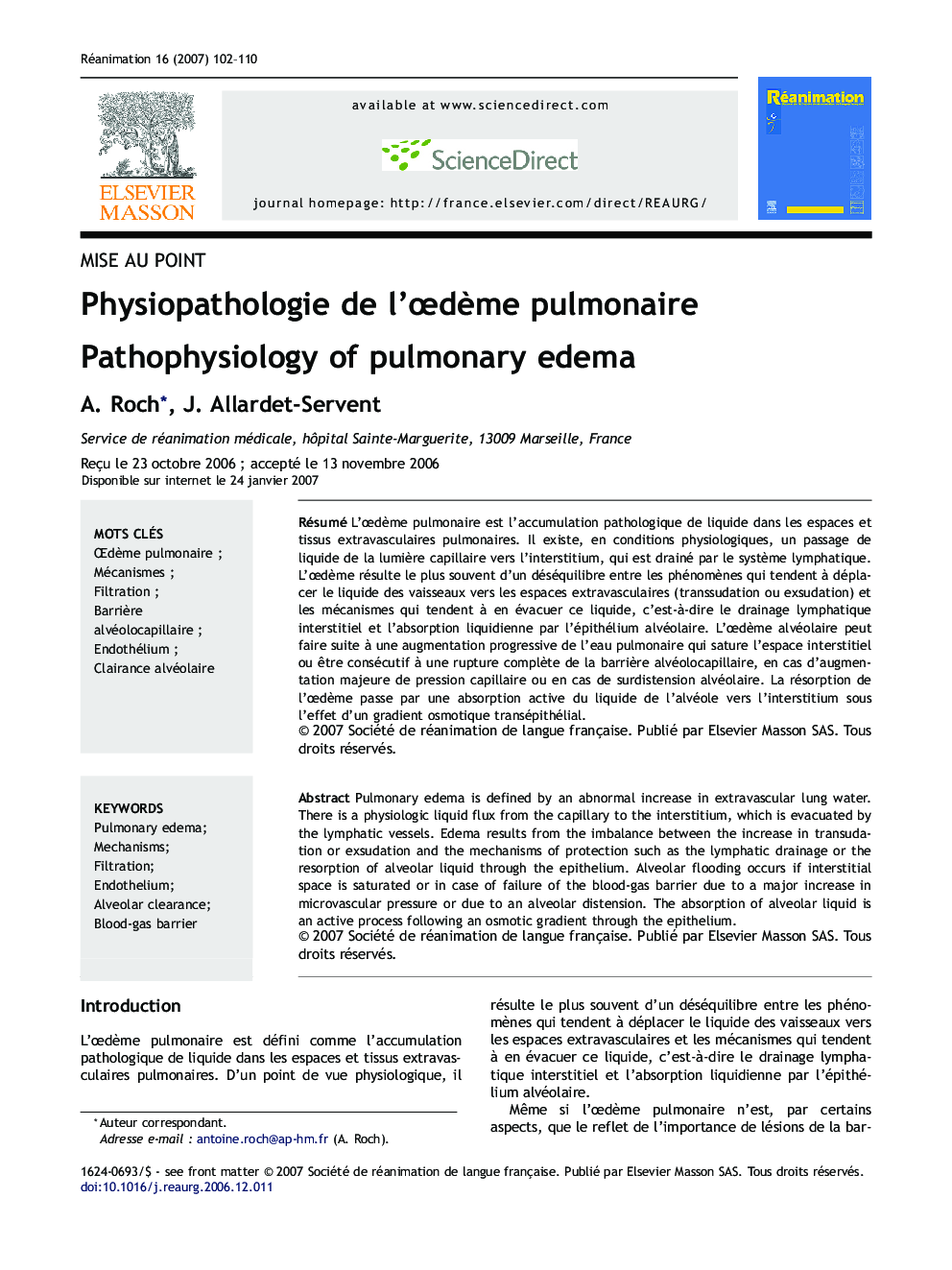| Article ID | Journal | Published Year | Pages | File Type |
|---|---|---|---|---|
| 2613890 | Réanimation | 2007 | 9 Pages |
Abstract
Pulmonary edema is defined by an abnormal increase in extravascular lung water. There is a physiologic liquid flux from the capillary to the interstitium, which is evacuated by the lymphatic vessels. Edema results from the imbalance between the increase in transudation or exsudation and the mechanisms of protection such as the lymphatic drainage or the resorption of alveolar liquid through the epithelium. Alveolar flooding occurs if interstitial space is saturated or in case of failure of the blood-gas barrier due to a major increase in microvascular pressure or due to an alveolar distension. The absorption of alveolar liquid is an active process following an osmotic gradient through the epithelium.
Related Topics
Health Sciences
Medicine and Dentistry
Emergency Medicine
Authors
A. Roch, J. Allardet-Servent,
